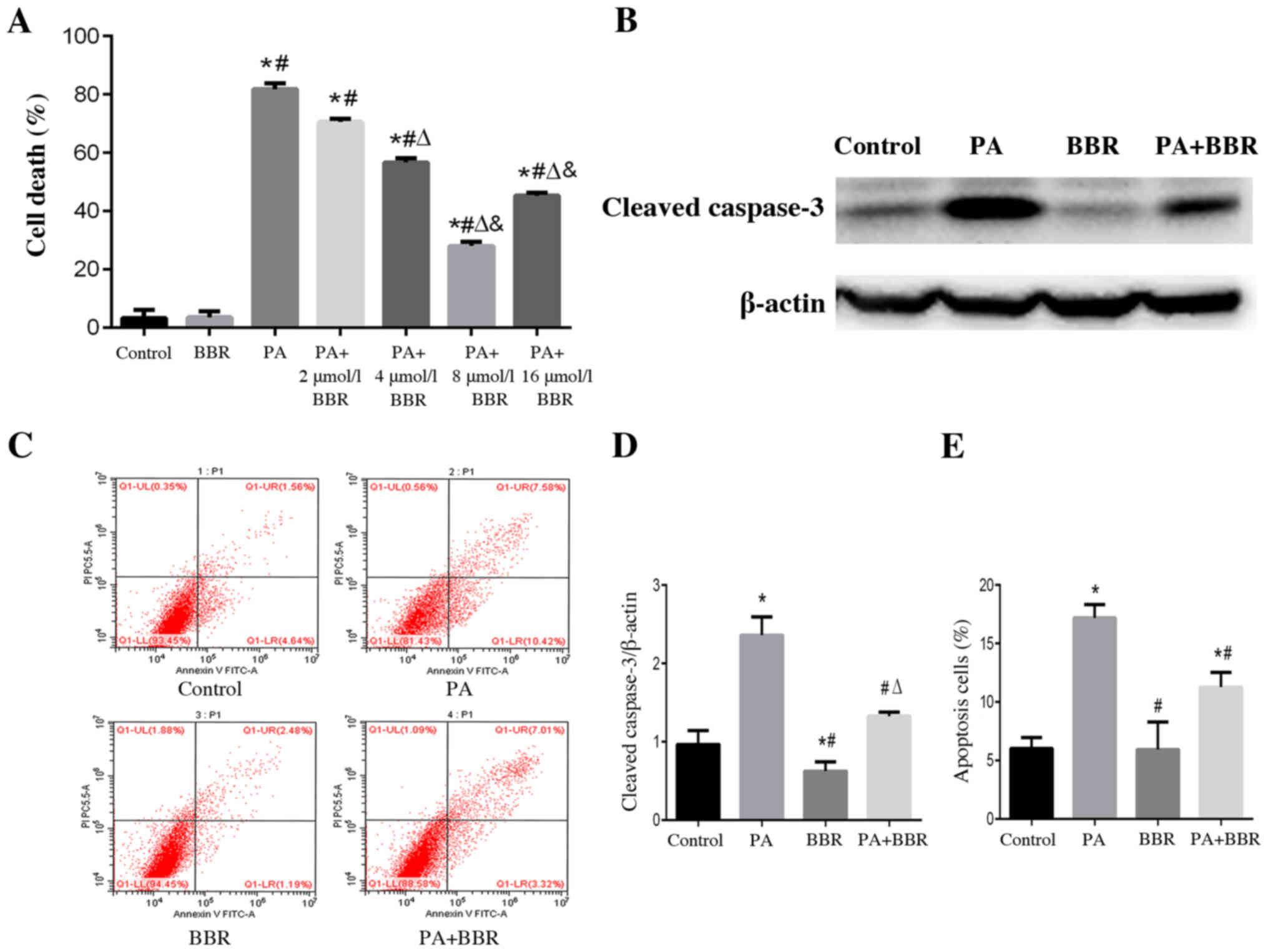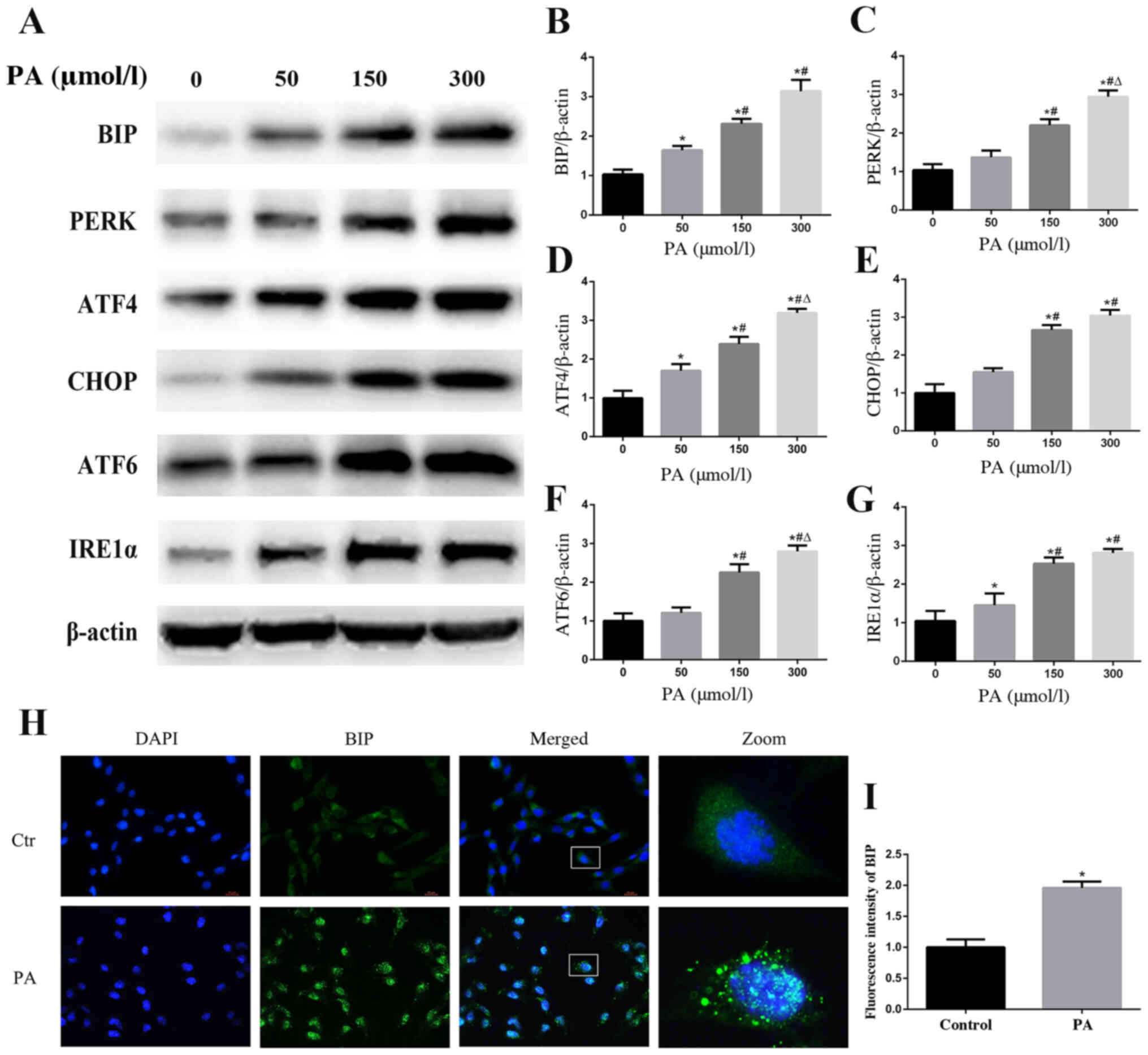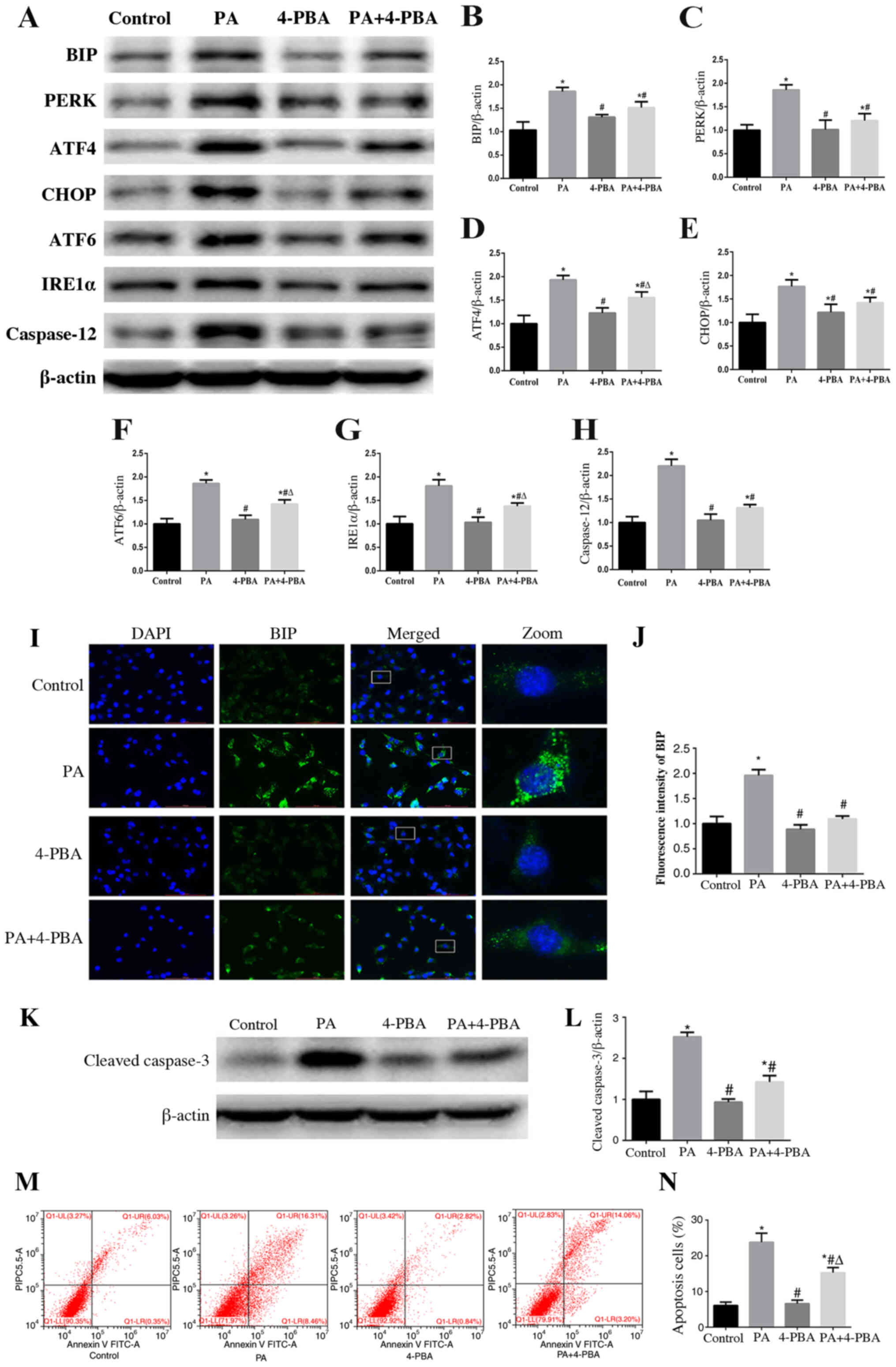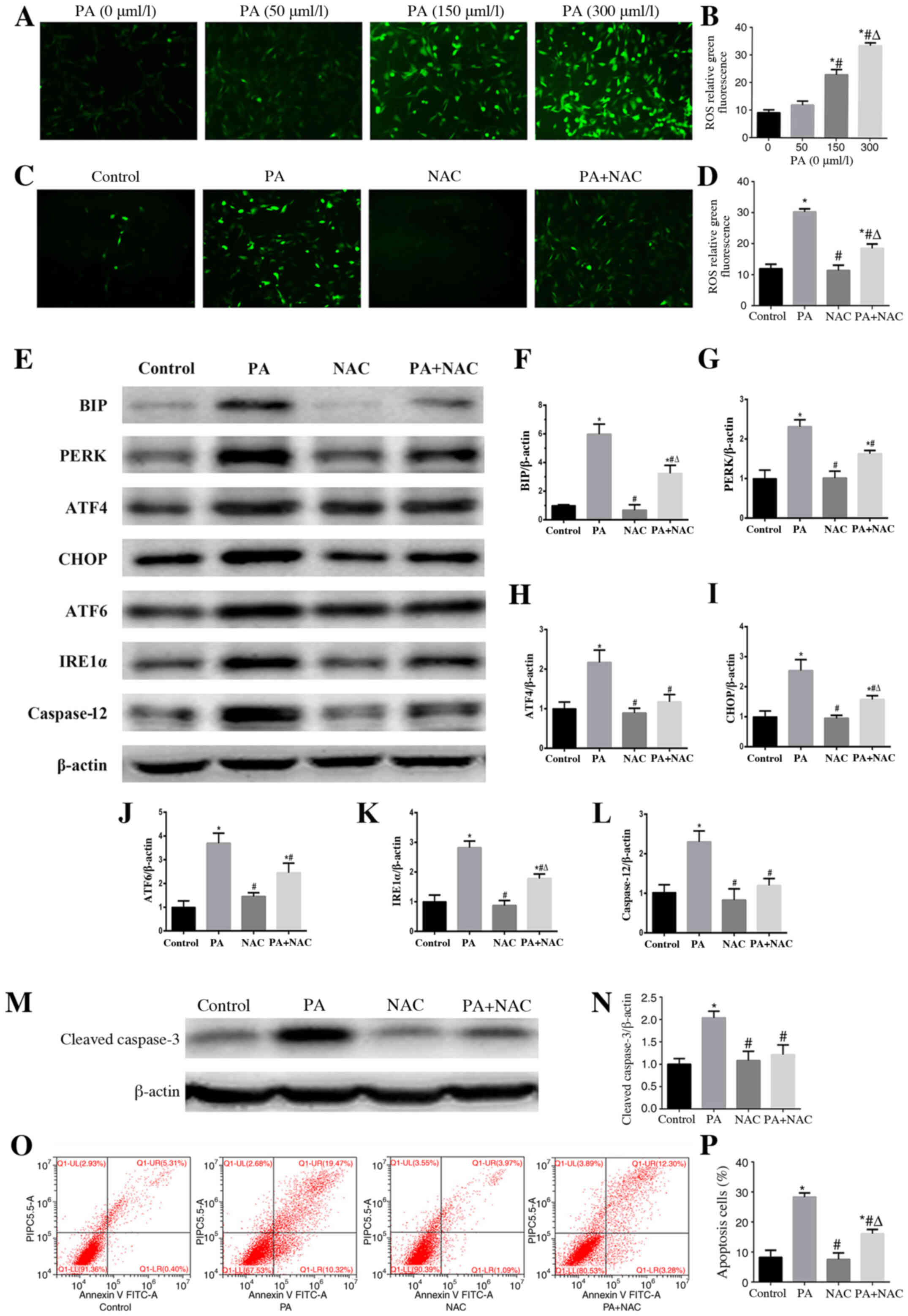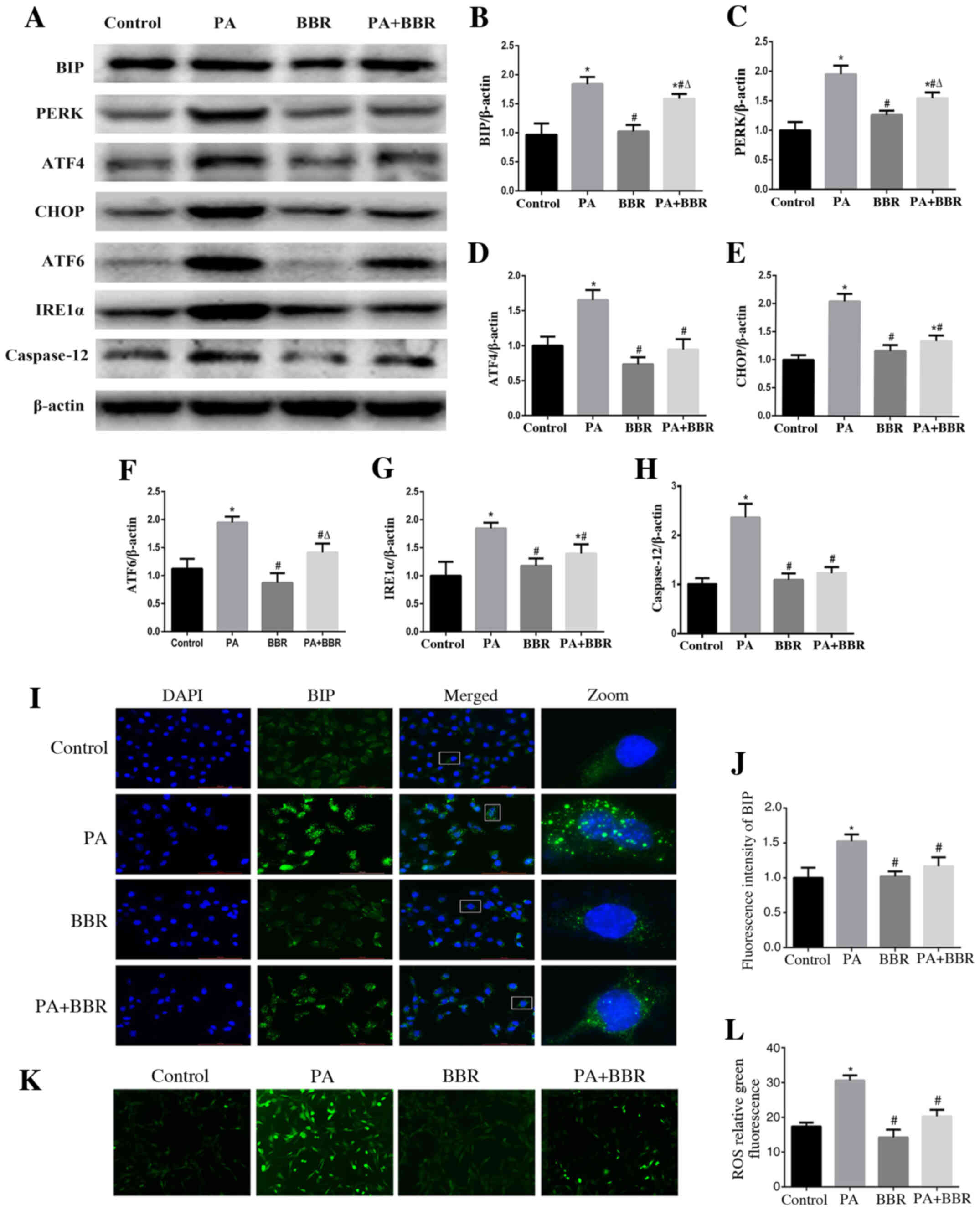|
1
|
Hager MR, Narla AD and Tannock LR:
Dyslipidemia in patients with chronic kidney disease. Rev Endocr
Metab Disord. 18:29–40. 2017. View Article : Google Scholar : PubMed/NCBI
|
|
2
|
Keane WF, Tomassini JE and Neff DR: Lipid
abnormalities in patients with chronic kidney disease: Implications
for the pathophysiology of atherosclerosis. J Atheroscler Thromb.
20:123–133. 2013. View Article : Google Scholar : PubMed/NCBI
|
|
3
|
Kasiske BL and Wheeler DC: The management
of dyslipidemia in CKD: New analyses of an expanding dataset. Am J
Kidney Dis. 61:371–374. 2013. View Article : Google Scholar : PubMed/NCBI
|
|
4
|
Kowalski A, Krikorian A and Lerma EV:
Dyslipidemia in chronic kidney disease. Dis Mon. 61:396–402. 2015.
View Article : Google Scholar : PubMed/NCBI
|
|
5
|
Izquierdo-Lahuerta A, Martinez-Garcia C
and Medina-Gómez G: Lipotoxicity as a trigger factor of renal
disease. J Nephrol. 29:603–610. 2016. View Article : Google Scholar : PubMed/NCBI
|
|
6
|
Dai H, Liu Q and Liu B: Research progress
on mechanism of podocyte depletion in diabetic nephropathy. J
Diabetes Res. 2017:26152862017. View Article : Google Scholar : PubMed/NCBI
|
|
7
|
Dalla Vestra M, Masiero A, Roiter AM,
Saller A, Crepaldi G and Fioretto P: Is podocyte injury relevant in
diabetic nephropathy? Studies in patients with type 2 diabetes.
Diabetes. 52:1031–1035. 2003. View Article : Google Scholar : PubMed/NCBI
|
|
8
|
Zhang Y, Ma KL, Liu J, Wu Y, Hu ZB, Liu L
and Liu BC: Dysregulation of low-density lipoprotein receptor
contributes to podocyte injuries in diabetic nephropathy. Am J
Physiol Endocrinol Metab. 308:E1140–E1148. 2015. View Article : Google Scholar : PubMed/NCBI
|
|
9
|
Szeto HH, Liu S, Soong Y, Alam N, Prusky
GT and Seshan SV: Protection of mitochondria prevents high-fat
diet-induced glomerulopathy and proximal tubular injury. Kidney
Int. 90:997–1011. 2016. View Article : Google Scholar : PubMed/NCBI
|
|
10
|
Martinez-Garcia C, Izquierdo-Lahuerta A,
Vivas Y, Velasco I, Yeo TK, Chen S and Medina-Gomez G: Renal
lipotoxicity-associated inflammation and insulin resistance affects
actin cytoskeleton organization in podocytes. PLoS One.
10:e01422912015. View Article : Google Scholar : PubMed/NCBI
|
|
11
|
Xu S, Nam SM, Kim JH, Das R, Choi SK,
Nguyen TT, Quan X, Choi SJ, Chung CH, Lee EY, et al: Palmitate
induces ER calcium depletion and apoptosis in mouse podocytes
subsequent to mitochondrial oxidative stress. Cell Death Dis.
6:e19762015. View Article : Google Scholar : PubMed/NCBI
|
|
12
|
Tao JL, Wen YB, Shi BY, Zhang H, Ruan XZ,
Li H, Li XM, Dong WJ and Li XW: Endoplasmic reticulum stress is
involved in podocyte apoptosis induced by saturated fatty acid
palmitate. Chin Med J (Engl). 125:3137–3142. 2012.PubMed/NCBI
|
|
13
|
Hua W, Huang HZ, Tan LT, Wan JM, Gui HB,
Zhao L, Ruan XZ, Chen XM and Du XG: CD36 mediated fatty
acid-induced podocyte apoptosis via oxidative stress. PLoS One.
10:e01275072015. View Article : Google Scholar : PubMed/NCBI
|
|
14
|
Rabbani GH, Butler T, Knight J, Sanyal SC
and Alam K: Randomized controlled trial of berberine sulfate
therapy for diarrhea due to enterotoxigenic Escherichia coli
and Vibrio cholerae. J Infect Dis. 155:979–984. 1987. View Article : Google Scholar : PubMed/NCBI
|
|
15
|
Taylor CE and Greenough WB III: Control of
diarrheal diseases. Annu Rev Public Health. 10:221–244. 1989.
View Article : Google Scholar : PubMed/NCBI
|
|
16
|
Lan J, Zhao Y, Dong F, Yan Z, Zheng W, Fan
J and Sun G: Meta-analysis of the effect and safety of berberine in
the treatment of type 2 diabetes mellitus, hyperlipemia and
hypertension. J Ethnopharmacol. 161:69–81. 2015. View Article : Google Scholar : PubMed/NCBI
|
|
17
|
Kong W, Wei J, Abidi P, Lin M, Inaba S, Li
C, Wang Y, Wang Z, Si S, Pan H, et al: Berberine is a novel
cholesterol-lowering drug working through a unique mechanism
distinct from statins. Nat Med. 10:1344–1351. 2004. View Article : Google Scholar : PubMed/NCBI
|
|
18
|
Ni WJ, Ding HH and Tang LQ: Berberine as a
promising anti-diabetic nephropathy drug: An analysis of its
effects and mechanisms. Eur J Pharmacol. 760:103–112. 2015.
View Article : Google Scholar : PubMed/NCBI
|
|
19
|
Zhang Z, Li B, Meng X, Yao S, Jin L, Yang
J, Wang J, Zhang H, Zhang Z, Cai D, et al: Berberine prevents
progression from hepatic steatosis to steatohepatitis and fibrosis
by reducing endoplasmic reticulum stress. Sci Rep. 6:208482016.
View Article : Google Scholar : PubMed/NCBI
|
|
20
|
Wang B, Xu X, He X, Wang Z and Yang M:
Berberine improved aldo-induced podocyte injury via inhibiting
oxidative stress and endoplasmic reticulum stress pathways both in
vivo and in vitro. Cell Physiol Biochem. 39:217–228. 2016.
View Article : Google Scholar : PubMed/NCBI
|
|
21
|
Jiang XS, Chen XM, Wan JM, Gui HB, Ruan XZ
and Du XG: Autophagy protects against palmitic acid-induced
apoptosis in podocytes in vitro. Sci Rep. 7:427642017. View Article : Google Scholar : PubMed/NCBI
|
|
22
|
Liu T, Chen XM, Sun JY, Jiang XS, Wu Y,
Yang S, Huang HZ, Ruan XZ and Du XG: Palmitic acid-induced podocyte
apoptosis via the reactive oxygen species-dependent mitochondrial
pathway. Kidney Blood Press Res. 43:206–219. 2018. View Article : Google Scholar : PubMed/NCBI
|
|
23
|
Rashid HO, Yadav RK, Kim HR and Chae HJ:
ER stress: Autophagy induction, inhibition and selection.
Autophagy. 11:1956–1977. 2015. View Article : Google Scholar : PubMed/NCBI
|
|
24
|
Lukas J, Pospech J, Oppermann C, Hund C,
Iwanov K, Pantoom S, Petters J, Frech M, Seemann S, Thiel FG, et
al: Role of endoplasmic reticulum stress and protein misfolding in
disorders of the liver and pancreas. Adv Med Sci. 64:315–323. 2019.
View Article : Google Scholar : PubMed/NCBI
|
|
25
|
Maamoun H, Abdelsalam SS, Zeidan A,
Korashy HM and Agouni A: Endoplasmic reticulum stress: A critical
molecular driver of endothelial dysfunction and cardiovascular
disturbances associated with diabetes. Int J Mol Sci. 20:16582019.
View Article : Google Scholar
|
|
26
|
Vaziri ND: HDL abnormalities in nephrotic
syndrome and chronic kidney disease. Nat Rev Nephrol. 12:37–47.
2016. View Article : Google Scholar : PubMed/NCBI
|
|
27
|
Reiss AB, Voloshyna I, De Leon J, Miyawaki
N and Mattana J: Cholesterol metabolism in CKD. Am J Kidney Dis.
66:1071–1082. 2015. View Article : Google Scholar : PubMed/NCBI
|
|
28
|
Ferro CJ, Mark PB, Kanbay M, Sarafidis P,
Heine GH, Rossignol P, Massy ZA, Mallamaci F, Valdivielso JM,
Malyszko J, et al: Lipid management in patients with chronic kidney
disease. Nat Rev Nephrol. 14:727–749. 2018. View Article : Google Scholar : PubMed/NCBI
|
|
29
|
Reiser J and Sever S: Podocyte biology and
pathogenesis of kidney disease. Annu Rev Med. 64:357–366. 2013.
View Article : Google Scholar : PubMed/NCBI
|
|
30
|
Sieber J and Jehle AW: Free fatty acids
and their metabolism affect function and survival of podocytes.
Front Endocrinol (Lausanne). 5:1862014. View Article : Google Scholar : PubMed/NCBI
|
|
31
|
Zou K, Li Z, Zhang Y, Zhang HY, Li B, Zhu
WL, Shi JY, Jia Q and Li YM: Advances in the study of berberine and
its derivatives: A focus on anti-inflammatory and anti-tumor
effects in the digestive system. Acta Pharmacol Sin. 38:157–167.
2017. View Article : Google Scholar : PubMed/NCBI
|
|
32
|
Cheng F, Wang Y, Li J, Su C, Wu F, Xia WH,
Yang Z, Yu BB, Qiu YX and Tao J: Berberine improves endothelial
function by reducing endothelial microparticles-mediated oxidative
stress in humans. Int J Cardiol. 167:936–942. 2013. View Article : Google Scholar : PubMed/NCBI
|
|
33
|
Saha SK and Khuda-Bukhsh AR: Berberine
alters epigenetic modifications, disrupts microtubule network, and
modulates HPV-18 E6-E7 oncoproteins by targeting p53 in cervical
cancer cell HeLa: A mechanistic study including molecular docking.
Eur J Pharmacol. 744:132–146. 2014. View Article : Google Scholar : PubMed/NCBI
|
|
34
|
Zhang Y, Li X, Zou D, Liu W, Yang J, Zhu
N, Huo L, Wang M, Hong J, Wu P, et al: Treatment of type 2 diabetes
and dyslipidemia with the natural plant alkaloid berberine. J Clin
Endocrinol Metab. 93:2559–2565. 2008. View Article : Google Scholar : PubMed/NCBI
|
|
35
|
Wu U, Cha Y, Huang X, Liu J, Chen Z, Wang
F, Xu J, Sheng L and Ding H: Protective effects of berberine on
high fat-induced kidney damage by increasing serum adiponectin and
promoting insulin sensitivity. Int J Clin Exp Pathol.
8:14486–14492. 2015.PubMed/NCBI
|
|
36
|
Sun Y, Yuan X, Zhang F, Han Y, Chang X, Xu
X, Li Y and Gao X: Berberine ameliorates fatty acid-induced
oxidative stress in human hepatoma cells. Sci Rep. 7:113402017.
View Article : Google Scholar : PubMed/NCBI
|
|
37
|
Qin X, Zhao Y, Gong J, Huang W, Su H, Yuan
F, Fang K, Wang D, Li J, Zou X, et al: Berberine protects
glomerular podocytes via inhibiting Drp1-mediated mitochondrial
fission and dysfunction. Theranostics. 9:1698–1713. 2019.
View Article : Google Scholar : PubMed/NCBI
|
|
38
|
Kaufman RJ: Stress signaling from the
lumen of the endoplasmic reticulum: Coordination of gene
transcriptional and translational controls. Genes Dev.
13:1211–1233. 1999. View Article : Google Scholar : PubMed/NCBI
|
|
39
|
Begum G, Harvey L, Dixon CE and Sun D: ER
stress and effects of DHA as an ER stress inhibitor. Transl Stroke
Res. 4:635–642. 2013. View Article : Google Scholar : PubMed/NCBI
|
|
40
|
Gardner BM, Pincus D, Gotthardt K,
Gallagher CM and Walter P: Endoplasmic reticulum stress sensing in
the unfolded protein response. Cold Spring Harb Perspect Biol.
5:a0131692013. View Article : Google Scholar : PubMed/NCBI
|
|
41
|
Verfaillie T, Garg AD and Agostinis P:
Targeting ER stress induced apoptosis and inflammation in cancer.
Cancer Lett. 332:249–264. 2013. View Article : Google Scholar : PubMed/NCBI
|
|
42
|
Chen Y, Wu Z, Zhao S and Xiang R: Chemical
chaperones reduce ER stress and adipose tissue inflammation in high
fat diet-induced mouse model of obesity. Sci Rep. 6:274862016.
View Article : Google Scholar : PubMed/NCBI
|
|
43
|
Cabral-Miranda F and Hetz C: ER stress and
neurodegenerative disease: A cause or effect relationship? Curr Top
Microbiol Immunol. 414:131–157. 2018.PubMed/NCBI
|
|
44
|
Ariyasu D, Yoshida H and Hasegawa Y:
Endoplasmic reticulum (ER) stress and endocrine disorders. Int J
Mol Sci. 18:3822017. View Article : Google Scholar
|
|
45
|
Cybulsky AV: Endoplasmic reticulum stress,
the unfolded protein response and autophagy in kidney diseases. Nat
Rev Nephrol. 13:681–696. 2017. View Article : Google Scholar : PubMed/NCBI
|
|
46
|
Szegezdi E, Fitzgerald U and Samali A:
Caspase-12 and ER-stress-mediated apoptosis: The story so far. Ann
N Y Acad Sci. 1010:186–194. 2003. View Article : Google Scholar : PubMed/NCBI
|
|
47
|
Coppolino G, Leonardi G, Andreucci M and
Bolignano D: Oxidative stress and kidney function: A brief update.
Curr Pharm Des. 24:4794–4799. 2018. View Article : Google Scholar : PubMed/NCBI
|
|
48
|
Gai Z, Wang T, Visentin M, Kullak-Ublick
GA, Fu X and Wang Z: Lipid accumulation and chronic kidney disease.
Nutrients. 11:7222019. View Article : Google Scholar
|
|
49
|
Seervi M, Rani A, Sharma AK and Santhosh
Kumar TR: ROS mediated ER stress induces Bax-Bak dependent and
independent apoptosis in response to Thioridazine. Biomed
Pharmacother. 106:200–209. 2018. View Article : Google Scholar : PubMed/NCBI
|
|
50
|
Malhotra JD and Kaufman RJ: Endoplasmic
reticulum stress and oxidative stress: A vicious cycle or a
double-edged sword? Antioxid Redox Signal. 9:2277–2293. 2007.
View Article : Google Scholar : PubMed/NCBI
|
|
51
|
Cao SS and Kaufman RJ: Endoplasmic
reticulum stress and oxidative stress in cell fate decision and
human disease. Antioxid Redox Signal. 21:396–413. 2014. View Article : Google Scholar : PubMed/NCBI
|
|
52
|
Yu W, Sheng M, Xu R, Yu J, Cui K, Tong J,
Shi L, Ren H and Du H: Berberine protects human renal proximal
tubular cells from hypoxia/reoxygenation injury via inhibiting
endoplasmic reticulum and mitochondrial stress pathways. J Transl
Med. 11:242013. View Article : Google Scholar : PubMed/NCBI
|
|
53
|
Zhu L, Han J, Yuan R, Xue L and Pang W:
Berberine ameliorates diabetic nephropathy by inhibiting TLR4/NF-κB
pathway. Biol Res. 51:92018. View Article : Google Scholar : PubMed/NCBI
|
|
54
|
Feng X, Sureda A, Jafari S, Memariani Z,
Tewari D, Annunziata G, Barrea L, Hassan STS, Šmejkal K, Malaník M,
et al: Berberine in cardiovascular and metabolic diseases: From
mechanisms to therapeutics. Theranostics. 9:1923–1951. 2019.
View Article : Google Scholar : PubMed/NCBI
|















